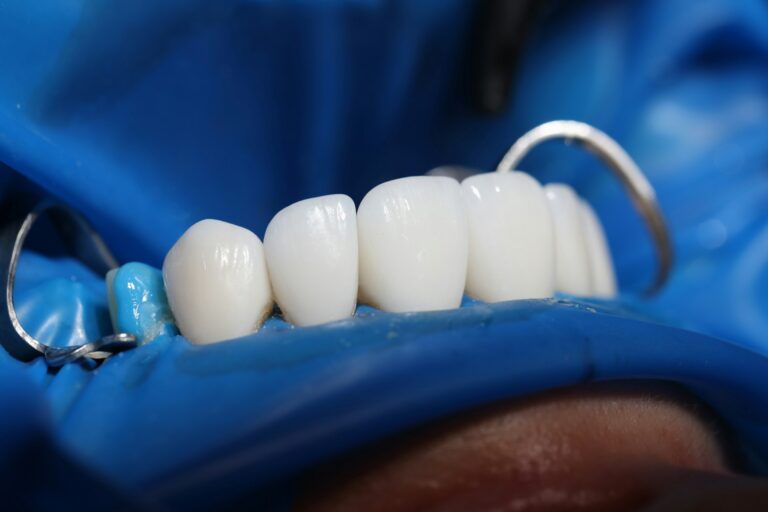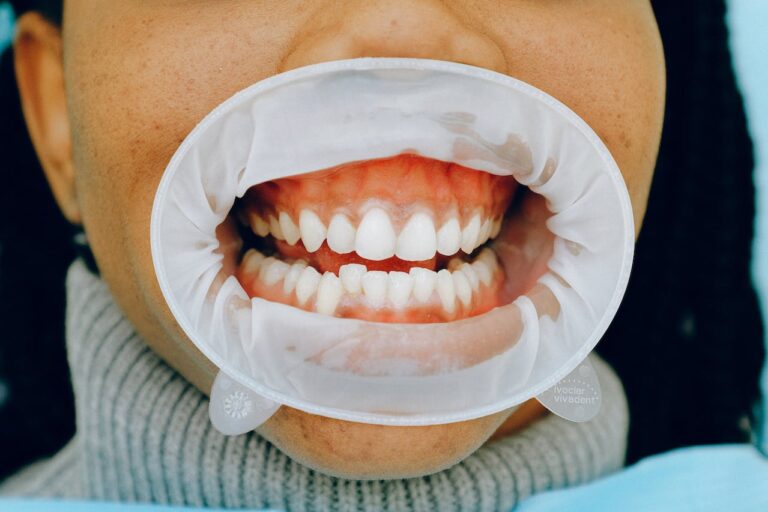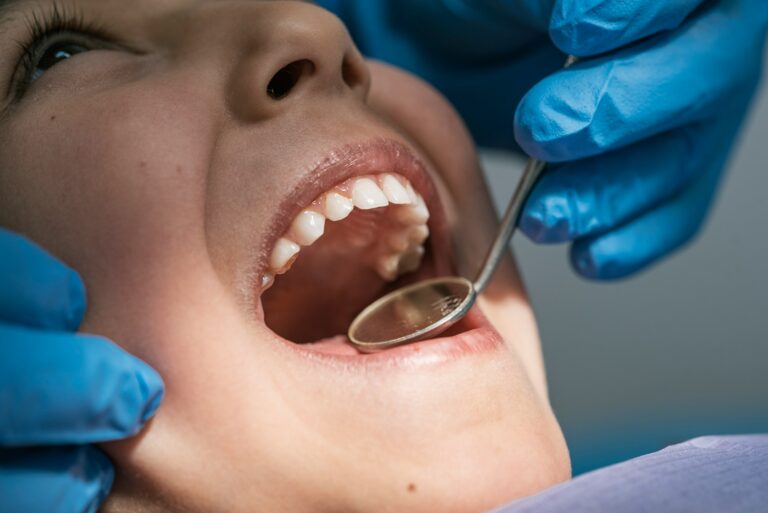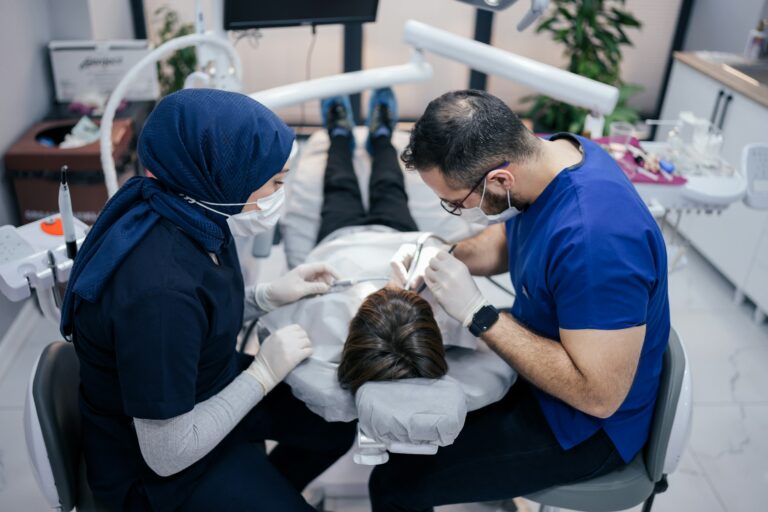Gum disease is a common problem that many of us face. This condition can lead to serious issues if not treated properly. Understanding gum disease is the first step in keeping our gums healthy and preventing future problems. Knowledge about gum disease can help us take the necessary steps to protect our overall oral health.
Gum disease starts with the build-up of plaque on our teeth. This plaque can irritate our gums, leading to redness, swelling, and bleeding. There are different stages of gum disease, from mild gingivitis to more serious periodontitis. Both need attention to stop further damage to our gums and teeth.
In Northglenn, we need to be aware of the signs of gum disease to catch it early. Symptoms like bad breath, receding gums, and loose teeth can all indicate gum disease. By recognizing these signs and taking action, we can keep our gums healthy. Let’s learn more about gum disease, how to spot it, and how to prevent it from causing serious harm.
What is Gum Disease?
Gum disease is an infection of the tissues that hold our teeth in place. It’s mainly caused by plaque, a sticky film of bacteria that builds up on teeth. When plaque isn’t removed by brushing and flossing, it can harden and form tartar. This tartar buildup can lead to gum disease. It’s essential to understand the basics of gum disease to prevent it from affecting our oral health.
There are two main stages of gum disease: gingivitis and periodontitis. Gingivitis is the earlier stage and is usually marked by red, swollen gums that may bleed easily. At this stage, the disease is still reversible with good oral hygiene. If gingivitis is not treated, it can progress to periodontitis. Periodontitis is more severe and involves the gums pulling away from the teeth, forming pockets that can become infected. This can lead to bone and tooth loss if not treated properly.
Gum disease doesn’t just affect our mouths; it can impact our overall health. Studies have shown a connection between gum disease and heart disease, diabetes, and even respiratory infections. Keeping our gums healthy can contribute to better overall health and well-being.
Recognizing the Symptoms of Gum Disease
It’s crucial to recognize the symptoms of gum disease early to treat it effectively. Here are common signs to watch for:
- Red, swollen, or tender gums
- Gums that bleed easily when brushing or flossing
- Persistent bad breath or bad taste in the mouth
- Receding gums or longer-looking teeth
- Loose or shifting teeth
Early detection of gum disease can make a big difference. For example, catching and treating gingivitis early can prevent it from advancing to periodontitis. We should pay attention to any changes in our gums and oral health and act promptly if we notice symptoms. Gum disease can be managed more easily when found at an early stage.
Knowing when to seek professional advice is important. If we notice any of these symptoms, it’s wise to schedule a visit with our dentist. They can help diagnose the severity of the condition and recommend the best course of action. Early professional intervention can help prevent more severe health issues and keep our gums and teeth in optimal condition.
Effective Prevention Strategies
1. Daily Oral Hygiene Habits
Good daily habits are essential to preventing gum disease. Brushing twice a day with a soft-bristled toothbrush removes plaque and food particles. Fluoride toothpaste helps strengthen teeth and protect gums. Flossing once a day cleans between the teeth where the brush can’t reach, preventing plaque buildup.
2. Foods That Support Gum Health
Eating the right foods can make a big difference. Crunchy vegetables like carrots and apples help clean teeth naturally. Dairy products provide calcium, which strengthens teeth. Foods rich in vitamin C, like oranges and strawberries, support gum health and boost our immune systems.
3. Avoiding Factors That Worsen Gum Conditions
Certain habits can make gum disease worse. Smoking damages gums and delays healing. High sugar intake increases the risk of decay and infections. Avoiding cigarettes and cutting down on sugary snacks help maintain healthier gums. Stress management is also important as stress can weaken our immune system and make gum problems worse.
Treatment Options for Gum Disease
1. Non-Surgical Treatments Available
Non-surgical treatments can effectively manage gum disease, especially in the early stages. Scaling and root planing are deep-cleaning techniques that remove tartar and smooth the root surfaces. This helps gums reattach to teeth. Antibacterial mouthwashes and medications can also reduce infection and inflammation.
2. Surgical Options for Advanced Cases
For severe cases, surgical options might be necessary. Flap surgery involves lifting the gums to remove tartar and then stitching the gums back in place. Bone grafts can replace damaged bone and encourage regrowth. Sometimes, gum grafts are used to cover exposed roots and protect them from decay.
3. The Role of Regular Dental Visits in Managing Gum Disease
Regular dental visits are crucial for managing gum disease. Professional cleanings and check-ups every six months help catch problems early. Our dentist can provide personalized advice and treatments based on our needs. This regular care keeps gum disease under control and maintains overall oral health.
Gum Disease: Prevention and Treatment
Gum disease is a serious concern that can affect our whole body, not just our mouth. Understanding the basics of gum disease and recognizing its symptoms help us take action early. Daily habits like brushing and flossing, along with a proper diet, play crucial roles in prevention. By avoiding harmful factors and seeking early treatment, we can protect our gums and overall health.
Advanced treatment options are available for more serious cases, but early detection and prevention remain key. Regular dental visits ensure that any signs of gum disease are addressed promptly and effectively.
If you want to keep your gums healthy, schedule a visit with Colorado Gum Care. Our experienced team is here to guide you on the best path to excellent gum health. Contact our periodontists in Northglenn, CO, to begin your journey to a healthier smile!







